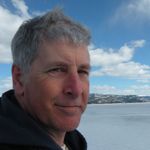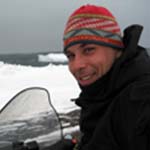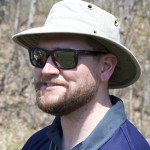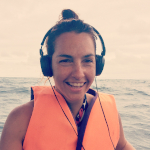 |
Stephen Insley
Associate Conservation Scientist
Dr. Stephen Insley is the WCS Canada Arctic Lead and part of the broader WCS Arctic Beringia program, working on the effects of climate change on Arctic ecosystems and northern communities. He leads two main projects in the Inuvialuit Settlement Region with Inuvialuit partners. The first uses passive acoustics to predict and avoid future shipping impacts through ambient underwater noise monitoring, identifying biologically sensitive areas, and predicting ship noise footprints. The second project collaborates with Inuvialuit communities to monitor seal diet and condition in order to understand ecosystem change and its effect on local food security. His research background has had three general themes: (1) animal acoustic behaviour; (2) the application of behavioural ecology principals and techniques to conservation biology; and (3) conservation through local stewardship. His approach has involved experimental field biology, mostly with pinnipeds and seabirds, and working with remote subsistence communities in a wide variety of field locations including the Bering Sea, the North and South Pacific and the North Atlantic Oceans. He has graduate degrees from the University of California Davis and the University of Victoria, where he is an Adjunct Professor of Biology, as well as Postdoctoral experience at the Smithsonian Institution. Research Gate | Google Scholar | LinkedIn | Arctic acoustics program
|
|
 |
Martin Robards
Arctic Beringia Coordinator
Dr. Martin Robardsis the Director of the WCS's Arctic Beringia Program and has 20 years of Alaska research experience, having worked extensively with indigenous communities and their representatives in the Arctic. Dr. Robards also worked for two years in Washington D.C. at the Marine Mammal Commission, informing policy makers about the challenges of implementing regional-scale policies concerning the conservation of marine mammals in remote subsistence-dominated environments. He has published over 30 scientific articles, served as a reviewer for numerous scientific journals, and is affiliate faculty with the University of Alaska.
|
|
 |
William Halliday
Conservation Scientist and Arctic Acoustics Program Lead
Bill is a Conservation Scientist and the Arctic Acoustics lead in WCS Canada’s Arctic Beringia Program. He is based in Victoria, and works closely with Dr. Steve Insley in WCS Canada’s Whitehorse office, as well as with Dr. Francis Juanes at the University of Victoria. Bill studies marine mammals and fish in the western Canadian Arctic using passive acoustic monitoring (i.e. underwater listening). He examines how climate change and vessel traffic influence these animals, and is particularly interested in underwater noise pollution and the development of effective marine spatial planning. Bill has a strong background in quantitative ecology, with a specialization on habitat selection and animal behaviour, including four years of experience working at remote field sites in the Arctic on lemmings. Previously, Bill was a post-doctoral fellow with WCS Canada, completed his PhD at the University of Ottawa, and his MSc and BSc at Lakehead University.
Twitter | Website | Arctic acoustics program
|
|
 |
Niki Diogou
Post-Doctoral Fellow
Niki is a Postdoctoral Fellow with WCS Canada’s Western Arctic Program and the University of Victoria assessing spatiotemporal patterns of bowhead presence and underwater noise in the Western Canadian Arctic. A bioacoustician and oceanographer, Niki completed her PhD at the University of the Aegean in Greece, in collaboration with the Oregon State University. She uses passive acoustic recordings to investigate marine mammal presence in remote and inaccessible locations and answer ecological questions. During her PhD, Niki focused on sperm whales in Alaska and eastern Mediterranean Sea, but her scientific interests expand to the acoustics of the entire marine ecosystem, including all vocal animals, geophysical and anthropogenic noise. Niki scientific writings encompass the quantification of cetacean temporal distribution and how it may be influenced by climate change and oceanographic shifts. Niki’s research is motivated by conservation efforts and the potential harassment caused to marine wildlife from manmade noise and global warming. Niki, served as the founder and Director of a popular science festival in Greece (Pint of Science Greece), and is an advocate of the importance of science communication. A large part of her early career involved working for the protection of the Mediterranean sea turtles, allowing her extensive collaboration with different stakeholders and contributing directly to the conservation efforts of the Mediterranean marine ecosystem. Her passion for the oceans and seas are major drivers for her science.
|
|